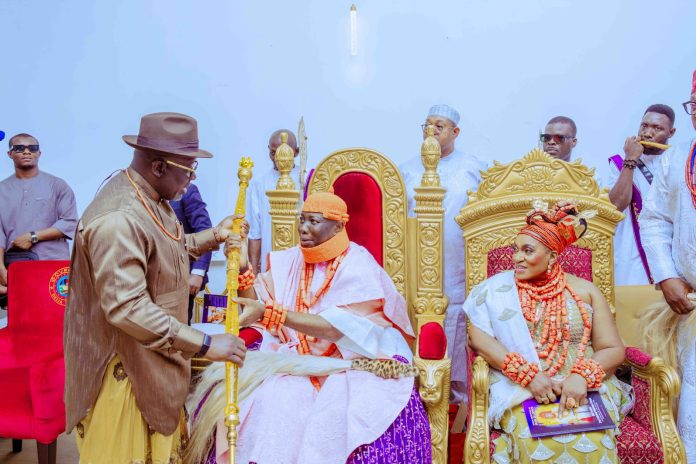UNDENIABLY, it is against the backdrop of the huge impact of Nigeria’s non-partisan traditional political leadership on the administration of the diverse, multi ethnic nationalities across the country that prompted the British colonial rulers to integrate the system into their model of administration. Moreover, at the inception of democratic rule, the Nigerian government through constitutional provisions during the First Republic formalized the role of traditional rulers in government at the regional level. They had the House of Chiefs, which was an integral part of the legislature.
The military, of all systems, accorded the traditional rulers during their elongated tenures visible place in governance by creating in the respective states council of traditional rulers with offices duly allocated to them for their meetings. Their role was advisory and very critical. The nation’s democratic leadership including the Fourth Republic since 1999 has maintained the model, moving forward to build befitting secretariats for traditional rulers.
The functions of traditional rulers in the administration of the country currently include interfacing between the government and the people; creating awareness and mobilizing the populace with regard to policies and programmes of government; maintaining security, peace and order in their respective domains; critical oversight in relation to public infrastructure in their areas; and serving as feedback mechanism for government, among others.And of course they play significant roles in the traditional legislative and judicial services of their communities.
In performing their roles, the traditional rulers do not work alone. The kings or queens in some rare instances have chiefs who work with them in decision-making and implementation. Some of the chiefs serve as advisers to the traditional rulers, creating an administrative model where the burden of leadership is lighter for the monarchs.
The chiefs, as in olden days, were men of integrity: honest, trustworthy, straightforward, diligent and loyal, among other sterling qualities. They were men whose backgrounds were near-perfect. We still have such men of honour as chiefs until date. Among them are businessmen, politicians, public servants (retired) and farmers with robust credentials who meritoriously earned their chieftaincy awards.
However, over a couple of decades ago the narrative has shifted, in our estimation, making way for riches to be a primary consideration for the choice of men and women on whom to confer chieftaincy titles, or put simply to be made chiefs. The trend is that it is easier for some money-bags with questionable virtues to be made chiefs than decent, honest hardworking persons. The story is the same in most parts of the country, and it is worrisome.
In some parts of the country, we learnt, there exist agents that move from community to community soliciting for chieftaincy titles on behalf of clients. While some of such agents are dismissed and booted out of a number of palaces, others get what they want on payment of prescribed fees. No due background check is ever conducted for the prospects. Thus, strange characters join the respected body of chiefs who serve as advisers to the monarch. Having muscled their way into the rank of chiefs, they would want to bring their dubious influence to bear on the decision of the palace.
It is perhaps on this account that the Delta State Governor, Rt.Hon. Sheriff Oborevwori, recently called on traditional rulers in the state “to exercise great care in conferring chieftaincy titles and ensuring that only individuals of proven integrity are honoured.” The governor spoke through the deputy governor, Sir Monday Onyeme, during the official inauguration of the traditional ruler of Egbudu-Akan, HRM Augustine Okolie 111, in Aniocha South Local Government Area.
We completely agree with the position of Governor Oborevwori. The monarchs should adhere strictly to the admonition of the governor. Such honour, as he said, should be reserved for only men and women of proven integrity. We know the Nigerian society has increasingly become crazy for titles; but we plead that chieftaincy titles should be delisted from the articles of trade. We pay tribute to monarchs who have made it a point of duty not to confer chieftaincy titles based on cash and carry.
Furthermore, we urge that subnational governments should periodically review the allowances paid to traditional rulers to make them more comfortable and less vulnerable to inducements by chieftaincy title chasers. It is also our view that governments should draw up a code of principles to regulate the award of chieftaincy titles in the various states as a strategy to mitigate the ugly trend.


